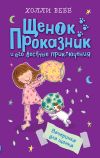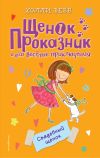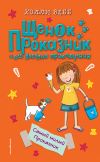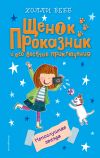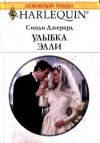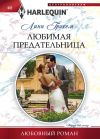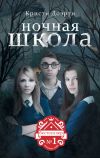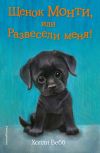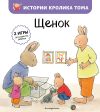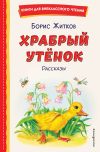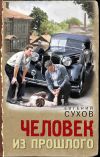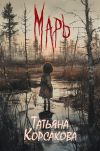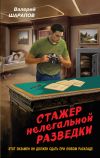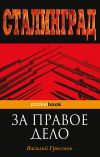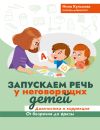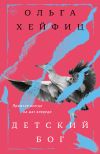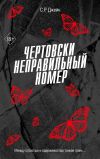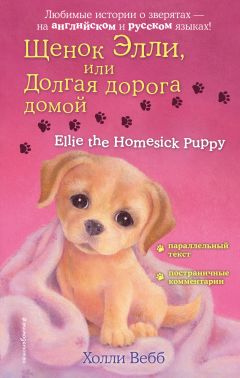
Автор книги: Холли Вебб
Жанр: Детская проза, Детские книги
Возрастные ограничения: +6
сообщить о неприемлемом содержимом
Текущая страница: 1 (всего у книги 5 страниц) [доступный отрывок для чтения: 1 страниц]
Холли Вебб
Щенок Элли, или Долгая дорога домой / Ellie the Homesick Puppy
© Лебедева Н., перевод на русский язык, 2013
© ООО «Издательство «Эксмо», 2022
Дорогие читатели!
Вы держите в руках необычную книгу. Для тех, кто изучает английский язык в школе или дома, она станет настоящим подарком! Эта книга – билингва. Современный английский язык, на котором говорят герои знаменитой писательницы Холли Вебб, и прекрасный перевод станут замечательным подспорьем для того, чтобы учить язык просто и интересно. Если английский текст станет совсем непонятным, всегда можно подсмотреть, как та или иная фраза переведена на русский, а все грамматические конструкции или устойчивые выражения, которые вы можете не знать или забыть, объясняются внизу страницы.
С такой книгой вы быстро освоите все сложности английского и сможете похвастаться превосходными знаниями на уроках, а также в общении с носителями языка!

Holly Webb
Ellie the Homesick Puppy
For Tom, Robin and William
Chapter One

‘Megan, you’re meant[1]1
You’re meant – это страдательный залог (be + 3-я форма глагола). Его использование означает, что Меган не сама выполняет действие, его выполняют другие по отношению к ней: предполагается (кем-то другим), что ты…
[Закрыть] to be packing those books, not reading them!’
Megan looked up guiltily at her mum.
‘Sorry! I found this one down the side of my bed, and I’d forgotten I’d even got it[2]2
’d = had. Had forgotten и had got – это время Past Perfect (had + 3-я форма глагола). Оно описывает действие в прошлом, произошедшее раньше другого упомянутого действия в прошлом: сначала Меган забыла, что у неё была такая книга, а затем вдруг нашла её.
[Закрыть]. I haven’t read it[3]3
Haven’t read – это время Present Perfect (have/has + 3-я форма глагола). Его использование означает, что Меган не читала книгу вплоть до того момента, как та нашлась.
[Закрыть] for ages.’ Megan reluctantly put the book inside a box and sighed.
Mum smiled. ‘Oh, go on, you can keep it out – we’ve got a couple more days till we go anyway. You’ll go mad without a book to read.’
Megan nodded and laid the book on her pillow as Mum headed back downstairs. She sat down on her bed and shook her head disbelievingly.
‘A couple more days, Ellie. Only two more nights sleeping in this bedroom,’ she murmured.
Ellie clambered up onto Megan’s knee, wagging her tail, and then licked her hand lovingly. She didn’t know why Megan sounded worried, but she wanted to help.
‘You’re excited too, aren’t you?’ Megan said, smiling. ‘You haven’t got to go to a new school[4]4
Конструкция have (got) to передаёт вынужденное действие: тебе не придётся идти в новую школу.
[Закрыть] though, lucky Ellie.’ She stroked Ellie’s golden ears, and the little puppy shivered with delight. Then she curled up on the duvet again, working herself into a little yellow furry ball.
Moving house was exciting and scary at the same time. Megan’s bedroom in the new house was much bigger than this one, which would be great – but then she was really going to miss her best friend[5]5
Be going to описывает действие в будущем: Меган будет скучать по подруге.
[Закрыть] Bella, and all her mates from school. They had broken up for the Easter holidays the day before, and everyone in her class had got together to make her a huge card[6]6
Текст написан во времени Past Simple, а Past Perfect (had broken up, had got together) описывает более ранние по времени события в прошлом. Они произошли до того, как Меган погладила Элли.
[Закрыть], with all their photos on it and a message from each of them. She’d almost cried when they gave it to her, thinking how they’d all tried so hard to make it special. It was sitting on her desk now, so she could pack it very carefully at the top of one of the boxes, last thing. Megan looked at it and sighed.
It wasn’t as if they were actually moving all that far – only about ten miles; it wasn’t the other side of the country, or anything like that. But it meant a new school, of course, and a whole load[7]7
A load / loads = a lot of / lots – много.
[Закрыть]of new people. New friends, Megan told herself firmly.
The best thing was that in two days’ time, Megan and Ellie would be able to step out of their back door and ramble wherever they wanted. Here they only had the park, and Megan wasn’t allowed to walk Ellie[8]8
To walk Ellie – в значении «выгуливать» глагол walk используется именно так, без предлога with.
[Закрыть] on her own[9]9
Выражение on one’s own означает «самостоятельно», «одному».
[Закрыть]. She knew she was going to have to be very careful[10]10
Be going to описывает события в будущем, а have to передаёт их вынужденный характер: Она знала, что ей придётся быть очень внимательной.
[Закрыть] going for walks in the countryside near their new house, and every time she mentioned it, Mum kept reminding[11]11
Конструкция keep (kept, kept) doing something означает «продолжать что-то делать», «делать снова и снова»: мама снова напоминала ей…
[Закрыть] her about being responsible and not going too far. But all the same, she was practically going to have a wood at the end of her garden! It was going to be brilliant! She’d be able to take Ellie[12]12
Сокращение ’d может означать и had, и would. Здесь это would – глагол, описывающий события будущего в прошедшем времени: Она сможет отводить Элли.
[Закрыть] over to her Gran’s house, too, as Gran lived just about in walking distance[13]13
In walking distance – в пешей доступности.
[Закрыть] from their new house.
Megan gently stroked Ellie’s soft golden back, and the little dog gave a sleepy whine[14]14
Конструкция give (gave, given) + a(n) + существительное описывает однократное действие: give a smile – улыбнуться, give a hug – обнять, gave a sleepy whine – сонно пискнула.
[Закрыть] and half rolled over, inviting Megan to stroke her tummy[15]15
Tummy – сокращение от stomach (живот): животик.
[Закрыть]. She yawned hugely, showing her very white teeth, and opened her eyes, blinking lovingly up at Megan.
Megan smiled back at her. ‘I just can’t wait to take you for walks in those woods,’ she whispered happily. ‘It’s going to be the best thing ever!’
Ellie sprang up[16]16
Глагол spring (sprang, sprung) (прыгать) описывает само действие, а предлог up – его направление и результат: Элли вскочила.
[Закрыть] and gave an excited, hopeful little bark[17]17
Когда речь идёт о звуках, little означает не «маленький», а «тихий»: тихонько гавкнула.
[Закрыть].
Megan laughed. ‘You heard me say the W word, didn’t you, Ellie-pie[18]18
Pie переводится «пирог», но часто используется как ласковое слово по отношению к детям и животным – как русское «солнышко», например.
[Закрыть]? I can’t believe you want to go out again, we’ve only been back home an hour!’
Ellie was wagging her tail madly now, staring up at Megan, but Megan shook her head.
‘I’m sorry, Ellie. Mum says I have to pack.’
Ellie didn’t understand exactly what Megan was saying, but she knew what that tone of voice meant. No walk. She lay back down on the bed, her head resting[19]19
Глагол rest означает не только «отдыхать», но и «лежать, покоиться».
[Закрыть] mournfully on her paws. She knew they’d had a long walk, but now she’d had a little sleep, she felt just like another run[20]20
Выражение feel (felt, felt) like (doing) something означает «хотеть»: хотела ещё побегать.
[Закрыть].
Megan laughed at her. ‘You’re such an actress, Ellie! You’re behaving like I never take you for walks. And it’s not fair, because you know I’d love to[21]21
Love to – это сокращение от love to take you for a walk. ’d здесь означает would и указывает на желаемое (но недоступное) действие: я бы с удовольствием вывела тебя погулять.
[Закрыть]. But we have to get everything into boxes.’ She sighed. ‘And Mum’s only given me these ones. She says if I can’t get all my stuff in here, I’m going to have to sort some of it out and get rid of[22]22
Выражение get (got, got) rid of something означает «избавиться от чего-либо».
[Закрыть] it.’ She looked round her room worriedly. It seemed an awful lot to fit into such a small stack of boxes.
Megan went over to the window sill and started to pack her collection of toy dogs into a box. She had loads, all different breeds, but more than half of them were Labradors, like Ellie. Officially, she was a Yellow Labrador, but Megan thought yellow wasn’t the right word at all. Ellie was really a rich honey-golden colour, with pale cream fur on her tummy. Her ears were a shade darker than everywhere else, and super-silky. Mum reckoned that Ellie might get darker as she got older, to match her ears, but Megan wasn’t sure. She would be growing for ages[23]23
For ages – это устойчивое выражение означает «долго».
[Закрыть], anyway; she was just four months old at the moment. But even though Ellie was only a puppy, she was always bursting with energy.
Ellie stared soulfully at Megan, watching her tape[24]24
В английском языке короткие слова могут переходить из одной части речи в другую без видимых изменений. Здесь tape – не существительное «липкая лента», а глагол «заклеивать липкой лентой».
[Закрыть] up the box. It looked fun. Her ears twitched, and her tail wagged a little. Perhaps she could jump at that tape? She was never quite sure what was naughty, and sometimes jumping at things got her told off[25]25
Tell (told, told) somebody off переводится «отчитывать», «ругать». Глагол get означает, что Элли попадала в ситуацию, когда её ругали.
[Закрыть]…
Suddenly, Ellie’s ears pricked up. She could hear someone coming down the path. Tail wagging, she stood up on the bed to look out of the window, and gave Megan a little warning bark. It was Bella!
Before Bella even had the chance to ring the bell, Megan and Ellie raced out of the room and down the stairs, making for[26]26
Make (made, made) for – так называемый фразовый глагол: глагол, приобретающий новое значение в сочетании с предлогом. Он переводится «направляться к».
[Закрыть] the front door. Ellie won easily. She always did[27]27
Глагол did заменяет здесь глагол won, чтобы не повторять его: она всегда побеждала.
[Закрыть]. She was amazingly fast. She scrabbled at the front door with her paws, barking excitedly, until Megan caught up[28]28
Catch (caught, caught) up – фразовый глагол, означает «догнать», «поравняться».
[Закрыть].
‘Ssshh! Ellie, ssshh! Come back, look, I can’t open the door when you’ve got your paws on it, can I?’
Ellie scampered back, panting excitedly. She knew Megan’s friend Bella, and she hoped this meant a walk after all[29]29
Устойчивое выражение after all переводится «в конце концов».
[Закрыть]. She was used to walking[30]30
Выражение be used to something означает «привыкнуть», «иметь привычку»: привыкла гулять.
[Закрыть] with Bella, as Megan and her mum usually picked Bella up on the way to school. Ellie and Megan often walked round the corner to Bella’s house when they went to the park too, as Megan’s parents didn’t like her going on her own, even when she had Ellie with her.
‘Hi, Megan! Mum said I could come round and help you pack, if that’s OK with your mum and dad?’ Bella looked hopefully at Megan’s dad, who was struggling into the hall[31]31
Глагол struggle (бороться) указывает на усилие, а само действие описывают дальнейшие слова: вышел в холл, пошатываясь под тяжестью…
[Закрыть] carrying a massive box of china[32]32
China с большой буквы означает «Китай», а с маленькой – «фарфор» (который когда-то давно был только китайским).
[Закрыть] from the kitchen.
‘Umph! Fine by me,’ Dad said, putting down the box carefully. ‘But make sure you do pack[33]33
В Present Simple глагол do не требуется для образования утвердительных предложений. Он используется в них только для усиления и переводится «действительно», «в самом деле»: Проследите за тем, чтобы действительно паковать вещи.
[Закрыть], girls, OK? Not just chatting.’
* * *
Bella stared around Megan’s room. ‘All these boxes!’ She slumped down on Megan’s bed sadly, and Ellie scrambled up after her to lick her face. ‘Oof, not so much, Ellie! Oh, Megan, I’ve known for ages you were going[34]34
I’ve known – это время Present Perfect (have/has + 3-я форма глагола), оно описывает действия, начавшиеся в прошлом и к настоящему моменту давшие определённый результат: Я давно (к этому моменту) знала, что ты уезжаешь…
[Закрыть], but it seems so real now.’

Megan sat down beside her, and Ellie wriggled happily between them. ‘I know. Packing makes it seem as though it really is happening. The day after tomorrow…’ Megan’s voice wobbled, and Ellie turned to lick her too. What was the matter with them both? She looked worriedly from Megan to Bella and back again, making her big puppy ears swing. Something was definitely wrong. Ellie stood up with her paws on Megan’s shoulder, and stuffed her cold black nose firmly into Megan’s ear. That always made her laugh.
Megan did laugh this time too[35]35
В этом предложении в Past Simple глагол did также используется только для усиления: В этот раз Меган и правда рассмеялась.
[Закрыть], and so did Bella, but somehow they still sounded sad.
‘I suppose at least we can send each other emails,’ Bella said, reaching out to stroke Ellie, and Megan nodded.
‘And we can phone.’ Megan laughed. ‘Mum said she thought they might have to get me my own phone line[36]36
Глагол might передаёт не очень вероятное предположение, а have to поясняет, что речь идёт о вынужденном действии: мама говорит, что им, возможно, придётся провести для меня отдельную телефонную линию.
[Закрыть], or they’d never get to use the phone themselves! It won’t be the same as taking Ellie to the park with you, though.’
Ellie stood on the bed, listening to them with her head on one side. Something was definitely going on[37]37
У фразового глагол go (went, gone) on несколько значений, одно из них – «происходить», «разворачиваться» (о событиях).
[Закрыть].
‘I’m going to miss her too,’ Bella agreed, tickling Ellie’s ears. ‘You know Mum still won’t let me get a dog because she says we haven’t got the time to look after one. Now I won’t even be able to share Ellie with you. And she’s growing so quickly. I probably won’t recognize her soon.’
Ellie wagged her tail delightedly as Bella fussed over[38]38
Глагол fuss означает «суетиться», а в сочетании с over он описывает возню вокруг животного – когда его чешут, гладят, ласкают и говорят, какое оно красивое.
[Закрыть] her.
‘I’ll email you loads of photos,’ Megan promised. ‘And you’re coming to stay.[39]39
Обычно время Present Continuous (is/are + глагол + ing) описывает продолжительные действия в настоящем времени. Оно также может обозначать личные планы на будущее: Ты приедешь погостить.
[Закрыть] Mum and Dad are going to get me a sleepover bed that slides under mine. Ellie can be half your dog again then.’
‘You’d better record her bark for me[40]40
Конструкция somebody’d better do something передаёт мягкую рекомендацию: Тебе следовало бы записать для меня её лай.
[Закрыть], too,’ Bella reminded her. ‘I’ll never get out of the house for school in the morning without Ellie barking outside the gate.’
Ellie yawned. Megan and Bella kept fiddling around with those boxes and talking, and no one was taking her for a walk. She was bored. She slid off the bed and squeezed underneath it. There were always interesting things to play with under there…
* * *
‘I knew it!’ Megan’s dad put his head round the door five minutes later. ‘You two are sitting there chatting, instead of filling boxes.’
‘Sorry!’ Megan and Bella jumped up, and Megan grabbed a pair of trainers and stuffed them quickly into a box, just to look busy.
‘And what’s Ellie doing under there?’ Dad asked, peering round the end of Megan’s bed.
Ellie crept out from under the bed looking rather guilty, with half a roll of brown packing tape attached to her whiskers. It was very chewy, though she didn’t really like the taste, and it seemed to have stuck…
‘Naughty Ellie!’ Megan giggled. ‘Sorry, Dad. I’ll clean her up…’
Dad shook his head. ‘Honestly, after she ate your mum’s shoe yesterday, you’d think she’d have had enough of chewing things[41]41
You’d think she’d have had enough of chewing things – оба ’d расшифровываются здесь как would. Would have had выражает предположение, уже очевидно не реалистичное: Можно было бы подумать, что ей хватило жевания предметов.
[Закрыть]. Just keep an eye on her, OK?’
Megan nodded apologetically, and started to peel the tape off Ellie’s muzzle. ‘Silly dog,’ she muttered lovingly, as Ellie squirmed. ‘Yes, I know it’s not nice, but you can’t go round with parcel tape all over you. There!’
After that the girls made a real effort to get on with packing, and for the next hour they hardly even chatted[42]42
Hardly (едва ли, чуть не) часто переводится отрицанием: они едва ли разговаривали = почти не разговаривали.
[Закрыть] at all.
Ellie whined miserably. After Megan had taken the tape away and told her off, she’d sat so patiently, waiting for someone to play with her, or take her for a walk, or at least stroke her. But Megan and Bella just kept taking things off the shelves and putting them into those strange-smelling boxes. Ellie didn’t like it. This was her room, and it was changing. She liked it the way it was before.
‘Oh, Ellie, are you bored?’ Megan picked her up, hugging her gently. ‘I wish I could play with you too.[43]43
I wish I could play with you too. – I wish I could – это пожелание: Мне бы тоже хотелось с тобой поиграть.
[Закрыть] But we won’t be much longer.’
‘Actually, I told Mum I’d be back around now,’ said Bella, hugging Megan and Ellie both at the same time. ‘I can’t believe you’ve only got tomorrow left!’ She gulped. ‘I wish Mum hadn’t arranged for us to go and see my cousins,[44]44
Время Past Perfect (had + 3-я форма глагола) после I wish выражает сожаление о том, чего уже нельзя изменить: Жаль, что мама уже договорилась, что (в этот день) мы едем навестить кузенов.
[Закрыть] not on your last day. Call me soon?[45]45
Грамматически правильный вопрос выглядел бы так: Will you call me soon? Но в устной речи, в общении с друзьями, иногда можно не использовать вспомогательный глагол и местоимение.
[Закрыть] Promise! Bye, Megan!’ Then she dashed out of the room and down the stairs, almost slamming the front door behind her.
Megan sat down limply on her bed, looking round at the piles of boxes, all labelled by Bella in her favourite glittery felt tips with her best spelling, which was dreadful. ‘It’s going to be brilliant,’ she told Ellie again, but this time she didn’t feel quite so sure.
Chapter Two

Packing up had been an adventure to start with, but by the second day, everyone was starting to get grumpy[46]46
Конструкция get (got, got) + прилагательное описывает постепенное приобретение указанного качества: мрачнели.
[Закрыть]. It was such a huge job. The removals van was coming early the next morning, and everything had to be packed up by then. Megan could tell that her mum was panicking that they wouldn’t be ready in time.
She was trying to stay out of the way as much as possible, but it wasn’t easy with Ellie. Mum and Dad were far too busy to take her for a proper walk, and Megan wasn’t allowed to go out on her own, so Ellie was full of energy, and she couldn’t work it off properly. Already that morning she’d chewed[47]47
Здесь за ’d скрывается had. Время Past Perfect (had + 3-я форма глагола) описывает события в прошлом, происходившие ДО основных действий в прошлом. Элли УЖЕ изжевала рулон.
[Закрыть] a roll of bubble wrap into tiny pieces all over the living room floor, and she kept managing to be in everyone’s way.
‘Mum, stop!’ Megan yelled, as her mum lowered a box of books on to the hall floor.
‘What? What is it?’ Her mum straightened up, red-faced with effort, and peered worriedly over the top of the huge box.
‘You were just about to squish Ellie with that!’ Megan helped her mum put the box down on top of another one, then pointed to the space she’d been aiming for. Ellie was sitting there, wagging her tail and looking very pleased with herself.
Mum sighed. ‘You’re going to have to take her into the garden. I’m sorry, Megan, but Ellie’s going to get hurt in a minute. She’s better off outside[48]48
Устойчивое выражение be better off означает «быть в лучшем положении»: Ей будет лучше на улице.
[Закрыть].’
‘Come on, Ellie!’ Megan tried to sound enthusiastic as she led Ellie out into the garden. She’d found the red-and-white-striped knotted rope toy that Bella had given Ellie for Christmas in her basket, so at least they could play.
Ellie loved racing up and down the garden after the rope, it was her favourite toy, although she didn’t see why she always had to give it back to Megan after she’d fetched it. It was much more fun to chew it to bits. She shook her head vigorously as Megan tugged at the toy, laughing.
‘Give it here, you silly girl! I’m going to throw it again!’
‘Megan, can you come here a moment!’ It was Mum, calling from inside. With everyone already a bit grumpy, she knew she’d better go and see what Mum wanted, rather than pretend she hadn’t heard.
‘I’ll be back in a minute,’ she promised Ellie, and dashed inside.
Ellie shook the toy a few more times and growled at it, in case it was thinking of fighting back. At last she dropped it on the grass, nosing it hopefully. Where was Megan? This game wasn’t as much fun without her. Ellie left the toy and trotted up the garden to the back door.
The door was closed, but Ellie scrambled up the back step, anyway. The door didn’t always shut properly, and sometimes she could open it, if she nudged it hard with her nose at just the right place. Ellie pushed at the door. She wagged her tail proudly as it swung open and trotted inside.
Ellie wandered along the hallway, listening for Megan. Ah! That was her voice, coming from upstairs. She bounded up the stairs to find her.
Unfortunately, Megan’s dad was coming down the stairs, with his arms full of pictures from the bedrooms that he needed to bubble-wrap.
Ellie yowled as he accidentally trod on her paw, and tried to shoot off[49]49
Глагол shoot (shot, shot) описывает быстрое резкое движение, а предлог off обозначает его результат: улизнуть прочь.
[Закрыть] through his legs.
Megan’s dad stumbled down the stairs, twisting his ankle. He landed painfully at the bottom.
Clutching his ankle, he looked up to see Ellie staring down at him.

‘That stupid dog!’ he yelled. ‘Megan! Ellie just tripped me up on the stairs. You’re supposed to be watching her! I thought Mum told you to put her outside.’
Megan and her mum had heard the crash, and they were already running along the landing.[50]50
Сперва они услышали падение (had heard, время Past Perfect), а потом поспешили на лестницу (were running, время Past Continuous).
[Закрыть]
‘She didn’t mean to!’ Megan protested, hurrying to pick up Ellie, who was whimpering in fright. ‘I’m sorry, Dad, she was outside. I can’t have shut the back door properly[51]51
В английском языке отрицание присоединяется к первому глаголу предложения (например, «Я думаю, что я не сделал» будет I don’t think I did…). I can’t have shut the door properly не означает, что Меган не может справиться с дверью. Фраза переводится «Я могла плохо (неплотно) захлопнуть дверь».
[Закрыть] – it wasn’t her fault. Are you OK?’
‘No,’ her father muttered crossly, stretching his ankle. ‘Take that dog outside, now. Ow!’
Megan carried Ellie back into the garden. The little dog was shivering. She wasn’t used to being shouted at[52]52
Конструкция be used to (doing) something означает «привыкнуть к чему-либо». Being shouted at означает, что действие выполняет не Элли: оно направлено на неё. Получается: Элли не привыкла к тому, что на неё кричат.
[Закрыть], and she’d never heard Megan’s dad sound so cross. Megan sat down on the garden bench and cuddled Ellie, whispering soothing words. ‘Ssshh, he didn’t mean it. I’m sorry, Ellie, I should have made sure[53]53
I should have made sure – should выражает рекомендацию, а форма have made даёт понять, что она относится к событиям прошлого: мне надо было убедиться…
[Закрыть] you couldn’t get back in.’
Ellie snuggled into her fleecy top, still shaking. At least Megan wasn’t angry with her. She whined with pleasure as Megan stroked her ears.
She knew Megan would always be there to look after her.
Chapter Three

Ellie rested her chin on Megan’s shoulder, as she lovingly stroked her head over and over.
‘Megan!’ Mum was calling from inside. Megan stood up slowly, carrying Ellie. She was growing so fast! She had been so small when they got her, it had been easy to hold her like this. But now she was getting to be a real weight.
‘Oof, Ellie, my arms are going to fall off,’ Megan teased her lovingly, as she carried her up the garden. She felt Ellie tense up a little as they went into the kitchen to join Mum and Dad. Obviously she remembered Dad shouting at her. ‘Hey, ssshhh, it’s OK,’ she whispered. But Ellie buried her nose in Megan’s neck and whimpered.
‘Is Ellie all right?’ Mum asked. ‘She didn’t get hurt too, did she?’[54]54
Такие вопросы задают, когда почти уверены в ответе. Если в основном предложении есть отрицание, в вопросительном «хвостике» его не будет, и наоборот.
[Закрыть]
Megan shook her head. ‘No, I think she’s just a bit upset. She didn’t know what was going on. I’m really sorry she tripped you up, Dad. How’s your ankle?’
Dad had it propped up on the chair in front of him, covered by a bag of frozen peas. ‘I’ll live. But this has made us think[55]55
Время Present Perfect (have/has + 3-я форма глагола) описывает действия, начавшиеся в прошлом и имеющие результат к настоящему моменту. Родители задумались, когда папа споткнулся об Элли, и уже что-то придумали.
[Закрыть], Megan. Mum and I have talked it over, and we’re sure it’s the right thing to do now…’
‘What is?’ Megan asked cautiously. From the way Mum and Dad were looking, she had a feeling it was going to be something she wouldn’t like.
‘Ellie’s really been getting in the way[56]56
Время Present Perfect Continuous (has been getting) означает, что Элли путается под ногами уже долгое время и не собирается прекращать.
[Закрыть] while we’ve been packing, Megan,’ Mum explained. ‘It’s going to be the same when the removal men are loading up, and when we’re unpacking at the new house, too. It’s just not practical having a puppy around. Dad could have been hurt[57]57
Could выражает довольно вероятное предположение, а форма have been hurt после него даёт понять, что оно относится к прошлому: Папа мог пострадать.
[Закрыть] really badly.’
‘She didn’t mean to,’[58]58
Короткое слово to относится к предыдущему предложению, в котором описывались возможные последствия действий щенка, и означает didn’t mean to hurt Dad: не хотела навредить папе.
[Закрыть] Megan pleaded. ‘She’s only little. She wasn’t trying to be naughty.’
‘We know that, but we’re so busy, and no one has the time to exercise Ellie properly right now. So she’s even bouncier and sillier than usual! Aren’t you, hey?’ Dad reached out very gently to stroke the puppy. ‘Oh dear,[59]59
Oh dear выражает удивление, огорчение или недоверие и переводится словами «ой мамочки», «надо же», «ну и ну».
[Закрыть] I really did frighten her[60]60
Глагол did здесь использован только для усиления: я действительно её напугал. Нейтральное предложение звучало бы I frightened her – я напугал её.
[Закрыть],’ he said sadly, as he saw Ellie’s eyes widen nervously as he came close. ‘It isn’t fair on her.’
Megan gulped. She could see that they were right – she could hardly argue that Ellie wasn’t getting in the way, when Dad was sitting there with a hurt ankle. ‘But what are you going to do?’ she whispered. ‘You’re not going to make us give her back to Mrs Johnston, are you?’ Mrs Johnston was the breeder who had sold Ellie to them. She felt tears starting to well up in her eyes. ‘Please don’t say we have to give her back!’ she choked out. ‘It wasn’t her fault, I’ll be more careful, I promise!’
‘Megan, Megan, calm down! Of course we’re not sending Ellie back.’ Mum laughed, hugging her and Ellie. ‘This is only for a few days while we move. We don’t want to get rid of Ellie, but when we first started planning the move, your gran said she could help out[61]61
Фразовый глагол help out означает «выручать».
[Закрыть] and have Ellie for a bit if we needed her to. So I rang Gran just now, and she said she’d love to have her. She’ll drive up and get Ellie, and take her back to Woodlands Cottage until we’ve settled in[62]62
We’ve settled in – Present Perfect (’ve settled) всегда указывает на результат, здесь – на результат в будущем: когда мы устроимся.
[Закрыть] a bit, just for a couple of days. We’ll pick her up on Tuesday.’

‘We’re all going to be so busy, you’ll hardly notice she’s gone,’ Dad said encouragingly.
Megan held Ellie tightly, feeling the warm weight in her arms. She didn’t want to send Ellie away. Not when she was already upset. She was sure Ellie would hate it.
‘She won’t understand,’ she said sadly. ‘I know she loves Gran, but she’s never stayed with her[63]63
Время Present Perfect (has never stayed) означает, что действие не происходило до настоящего времени: Она никогда у неё не оставалась
[Закрыть]. She’s never stayed anywhere without me! She’ll think I’ve abandoned her… She’s really confused with all the packing already, and she doesn’t understand what’s going on. Couldn’t I[64]64
Отрицательная форма глагола в вопросительном предложении означает, что говорящий хочет сделать вопрос более выразительным. В русском языке для этого используются слова «разве», «неужели»: Неужели мне нельзя?…
[Закрыть] just be really, really careful and keep her in the garden and not let her get in the way?’ Megan begged. ‘I know Gran will look after her, but Ellie’s used to having me. She’ll be miserable somewhere else. And Gran’s got a cat – that’s not going to work! Sid will hate having Ellie in the house!’
Megan looked down at the puppy. Ellie quite liked chasing cats…
‘I’m sure your gran will sort them out,’ Dad said, smiling. ‘Sid and Ellie will probably be curled up on the sofa together by the time we go and pick Ellie up.’
Megan shook her head disbelievingly. ‘Please…?’ she whispered.
Mum sighed. ‘I’m sorry, Megan. We’ve already had one accident. And I nearly squashed Ellie with that box this morning. This just isn’t the right place for a puppy right now. And the new house, too. We don’t really know what it’s like – there might be all sorts of places where she could get herself into trouble. We need to check everything out first to make sure she’s safe.’
Ellie gave an anxious little whine. She could feel that Megan wasn’t happy, and she didn’t like it. She licked Megan’s cheek lovingly and looked at her with big, worried eyes.
Megan pressed her cheek gently against Ellie’s soft ears. It wasn’t just Ellie who was going to hate this. Megan had been counting on[65]65
Время Past Perfect Continuous (had been counting on) означает, что всё долгое время сборов Меган рассчитывала на то, что щенок будет рядом.
[Закрыть] having Ellie to cheer her up over the next couple of days. It was going to be so hard to leave her old home and her best friend. And now it looked like she was going to have to do it all on her own.
* * *
Gran drove up from Westbury later that afternoon to pick Ellie up. Ellie had a special dog cage for travelling, and it just about fitted on the back seat of Gran’s car. Megan carefully packed up Ellie’s basket and blanket, and her bowls and food – including her favourite bone-shaped biscuits. Then there was a bagful of toys, her lead, her blanket – the list went on[66]66
Здесь фразовый глагол go (went, gone) on означает «продолжать(ся)».
[Закрыть] and on.
‘Goodness,’ Gran murmured. ‘How many dogs am I looking after?[67]67
Present Continuous описывает длящиеся действия в настоящем времени, но может и передавать уже определённые, чёткие личные планы на будущее: За сколькими собаками я буду присматривать?
[Закрыть]’
‘Thanks so much for doing this,’ said Megan’s mum. ‘It’s a huge help.’
Ellie was trotting backwards and forwards after Megan as she carried all her things to make a pile in the hall. She was very confused about what was going on, but she’d seen Megan’s dad moving her travel cage into Gran’s car, so she thought she and Megan must be going somewhere[68]68
Глагол must выражает очень вероятное предположение – «должно быть», «наверное»: наверное, они с Меган куда-то поедут.
[Закрыть] with Gran. They had driven out for special walks in the woods with her before. It must be that. Though Ellie didn’t see why she would need her basket and everything else just to go out for the day.
‘Right.’ Gran finished her cup of tea. ‘We’d better be off then, if we don’t want to get back too late. We’ll see you all on Tuesday.’ She hugged Megan. ‘Oh, I’m so excited about having you all living so close. It’s going to be lovely.’
Megan hugged her back. She was excited too, but she couldn’t help worrying[69]69
Сan’t help doing something означает «не мочь не»: она не могла не беспокоиться.
[Закрыть] about Ellie. ‘Gran, you will make sure she’s not lonely tonight, won’t you? She usually sleeps on my bed,’ she reminded her anxiously.
‘I’ll do my best[70]70
Устойчивое выражение do (did, done) one’s best означает «сделать всё возможное»: сделаю всё, что в моих силах.
[Закрыть],’ Gran promised. ‘I think Sid would leave home if a dog came and tried to sleep on my bed with him, but how about I give Ellie a hot water bottle?’
Megan nodded sadly, as she pictured Ellie spending the night on her own.
‘It’s only for two days, Megan,’ Dad said, putting an arm around her shoulders. ‘Ellie will be fine.’
Ellie hopped into her cage happily enough, expecting Megan to come and sit next to her on the back seat. She would probably waggle her fingers through the door and tickle her ears.
But Gran was getting into the car without Megan. Ellie looked around anxiously, and barked to tell her she’d made a mistake. Gran looked back over her shoulder, and smiled. ‘It’s all right, Ellie. Shh-shh. Don’t worry, we’ll see Megan again soon.’
Ellie stared back at her. Yes, Megan. Gran must know what was wrong. Why were they going without Megan? She felt the vibrations as Gran started the car and howled in despair. Megan was being left behind![71]71
Megan was being left behind! – Продолженное время Past Continuous и страдательный залог подчёркивают драматичность момента: вот прямо сейчас, сию секунду, Меган оставляют!
[Закрыть] Ellie stood up on her hind legs in the cage, trying to look out of the window, but she could only see the side of the car and Gran’s seat in front.
Megan was clinging to her mum’s arm, trying to stop herself racing after Ellie and yelling at Gran to stop the car. ‘Oh, Mum, listen to her howling,’ she said miserably. ‘She’s so upset. Does she really have to go to Gran’s?’
Her mum just hugged her.
Ellie couldn’t see Megan, but she could hear her, and she sounded unhappy. She scrabbled frantically at the bars of her cage with her paws, desperate to get back to Megan.
As the car pulled away down the road, Ellie barked and barked.
At last, when it hurt to bark any more, she stopped. She pressed her nose against the door of the travel cage.
Gran had taken her away from Megan, and Megan hadn’t wanted her to go.[72]72
В предложении использовано Past Perfect (had + 3-я форма глагола), так как Элли обдумывает события, произошедшие до начала поездки.
[Закрыть] Of course she hadn’t! Ellie was Megan’s dog. Ellie didn’t understand what was going on, but she was absolutely certain about one thing.
She had to get back to Megan.[73]73
Have to передаёт вынужденное действие: Ей придётся (раз уж она попала в эту ситуацию) вернуться к Меган.
[Закрыть]

* * *
At Gran’s house, everything smelled different. Ellie had been there before, but only with Megan, when it had been fun. Gran was doing her best – she’d taken Ellie for a walk when they first arrived, to stretch her legs after being shut up in the car. But Ellie had trailed along behind her with her ears drooping, and in the end Gran had turned back.
But it was worse in the house. Ellie didn’t want to be here, and she hated cats. Sid was huge and black and old, and very grumpy. He didn’t like dogs at all, and he really didn’t like dogs who barked and jumped around all over the place. He stood on the back of an armchair and hissed angrily when he first saw Ellie. With all his fur standing up like that and his tail fluffed up like a brush, Sid was nearly as big as she was.
Gran carefully made sure they were kept apart after that, shutting Ellie in the kitchen. But then the phone rang, and she forgot to close the kitchen door when she came out to the hall to answer it. Ellie trotted out after her – she might not want to be here[74]74
Глагол might описывает не очень вероятное событие или предположение: может, ей и не очень хотелось здесь быть…
[Закрыть], but Gran was her one link with Megan.
Sid was sitting in the middle of the hallway like a furry black rock.
Ellie bounced at him bravely and barked, but Sid shot forwards[75]75
Shot forwards – глагол shoot (shot, shot) описывает быстрое резкое движение, а наречие forwards – его направление: Сид прыгнул вперёд…
[Закрыть] and scraped his claws across her nose. Ellie yelped. She’d chased cats before, or tried to anyway – Megan didn’t like her chasing things. But the cats had never fought back before. She stared at Sid worriedly, and he hissed again. It was a clear warning.
Ellie crept behind the sofa and stayed there, sulking, until Gran tempted her out with a handful of bone-shaped biscuits, the ones that Megan always gave her. Even those just made her miss Megan more. Gran took her back into the kitchen away from Sid and tried to make a big fuss of her, but Ellie didn’t really want to play. She was too confused.
Perhaps Megan would come and get her soon? She had been here with Megan before, after all. And she definitely remembered Sid, and the way this house smelled so strongly of cat. Megan must be coming later, Ellie decided hopefully. Every time footsteps went past on the pavement outside she pricked up her ears and wagged her tail. But as the afternoon wore on[76]76
Фразовый глагол wear (wore, worn) on означает «проходить» (о времени).
[Закрыть], she stopped bothering[77]77
Посла глагола stop нужно обращать внимание на форму глагола: от этого зависит значение фразы! Stop doing something означает «прекращать что-то делать»: перестала беспокоиться.
[Закрыть]. It never was Megan, and now it was getting dark.
She padded over to her basket and stared at it miserably. If Megan was coming to get her, she wouldn’t need her basket. Her food bowls were here too, and her toys. Why would they be here if Megan was coming to take her home?
* * *
‘Can I talk to Ellie, Gran?’ Megan asked, gripping the phone tightly.
‘I’m not sure that’s a very good idea, Megan,’ Gran said gently. ‘It might upset her. She’ll be fine. I’m going to put a hot water bottle in her basket, and she’s got her blanket and all her usual things. I expect she’ll have settled down by the morning.[78]78
She’ll have settled – ’ll – сокращение от will. Have settled после will означает, что к указанному моменту в будущем (к утру) результат будет достигнут: Элли к утру обживётся.
[Закрыть]’
Which means she hasn’t settled down now, Megan thought unhappily as she said goodbye. Ellie was hating being at Gran’s, just as Megan had thought she would[79]79
Megan had thought she would – время Past Perfect (had thought) означает, что Меган ожидала этого ещё ДО описываемых событий, а глагол would выражает будущее в прошедшем времени: Меган ожидала, что она будет (переживать).
[Закрыть].
They were having fish and chips for tea[80]80
Обычно глагол have не используется в продолженных временах (Present и Past Continuous). Но в устойчивых выражениях have breakfast/lunch/dinner – завтракать/обедать/ужинать – он может употребляться в продолженном времени. Tea означает здесь вечернюю трапезу.
[Закрыть], as a treat, so they didn’t have to cook, but Megan hardly ate anything. It wasn’t the same without Ellie lurking hopefully under the table in case anyone dropped a chip.
She was feeling so miserable she went to bed early, but it took her ages to get to sleep – her room was full of boxes, and they all looked strange and gloomy in the dark. Only till Tuesday, Megan told herself. Today’s Sunday. Tuesday afternoon, I’ll have Ellie back.
* * *
That night, Ellie was left alone in Gran’s kitchen. She had her own familiar basket and her blanket, which was wrapped round a cosy hot water bottle, but she was still desperately homesick.
She whined unhappily for a long while, but Gran didn’t come down. Ellie was tired, but her basket felt wrong with the hot water bottle in it. It had cooled down now, and it sloshed and wobbled when she moved. Ellie tried to scrabble it out, but it was heavy, so she picked it up in her teeth and dragged it instead. Still it wouldn’t budge. She tugged again and the water started to leak out over her blanket.
Ellie howled. Why had Megan abandoned her?
Внимание! Это не конец книги.
Если начало книги вам понравилось, то полную версию можно приобрести у нашего партнёра - распространителя легального контента. Поддержите автора!Правообладателям!
Данное произведение размещено по согласованию с ООО "ЛитРес" (20% исходного текста). Если размещение книги нарушает чьи-либо права, то сообщите об этом.Читателям!
Оплатили, но не знаете что делать дальше?